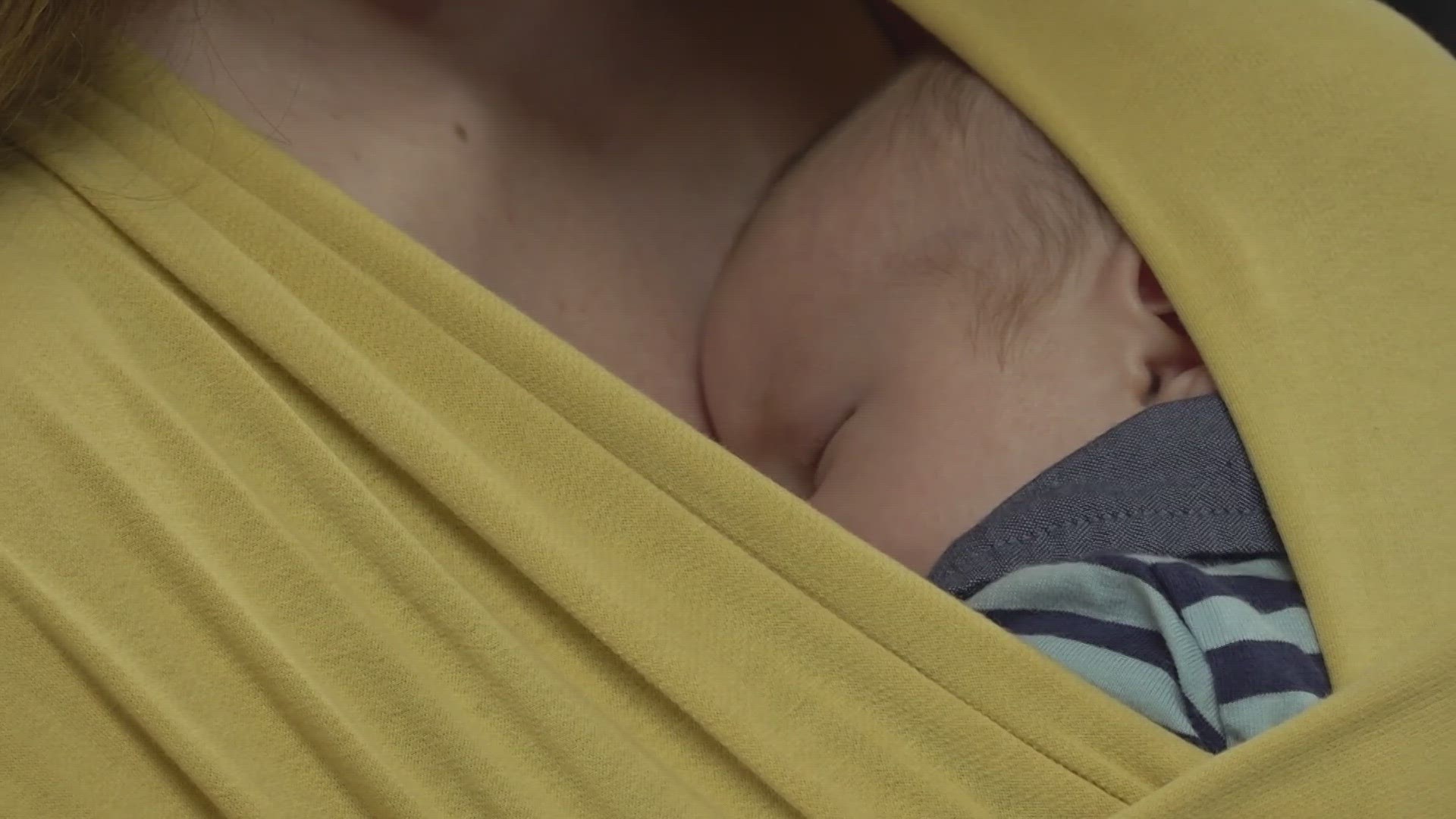KNOXVILLE, Tenn. — Parenthood is a big change and this change sometimes comes with a price and a group from East Tennessee is working to raise awareness about mood disorders for new parents.
According to the Centers for Disease Control and Prevention, one out of eight women reports symptoms of depression after giving birth. And of those, more than half of pregnant women with depression are not treated.
The group's, Postpartum Support International, goal is to raise awareness about perinatal mood disorders. These can be anything from postpartum depression to feelings of anxiety or sadness or fatigue that can happen during or after pregnancy.
The birth of a child is a happy moment but it can come with its own challenges. Jade Porter, a nurse and internationally board certified lactation consultant at Milk and Honey, has three children and said that she was diagnosed with postpartum depression.
"After my first child was born, I was diagnosed with postpartum depression," she said. "I really was just in a deep hole for a long, long time. I don't have a lot of memories of that whole first year after [my child] was born."
The symptoms would often creep up on her.
"I would be sitting on the couch watching TV, and all of a sudden, my heart rate would be like 160," Potter said.
She reached out for help and 11 years later she became a part of a group that helps new parents. Emily Pace, a pelvic floor physical therapist at East Tennessee Spine & Sport physical therapy, is also part of this group.
"We are here to just provide education and understanding of what postpartum mood disorders look like," Pace said. "And then also just celebrate people who are survivors."
These disorders can also include the mother's partners, according to Pace.
Alex Gardner, mother-baby nutrition specialist, said that food matters.
"My philosophy at this point is [feeding] is best not just for babies, but for parents," Gardner said. "If that means you're eating a cold pizza from the night before that you threw in the fridge, that's okay. You're eating food and you're nourishing yourself. It doesn't have to be a salad with every meal."
But there is help. Potter mentioned that what you may be going through is common, but not normal. The path to recovery includes awareness.
"I have a mental health disorder and I'm treating it. It's something that I live with, but it doesn't define me," Potter said.
There are a few steps that can help. Pace said, to talk to whoever helped deliver your baby and then find a mental health provider. One of them might prescribe medication, while the other can address the mental health component. As a team, they can help you get back on track.
If you would like to donate to the cause, you can visit the link here.

